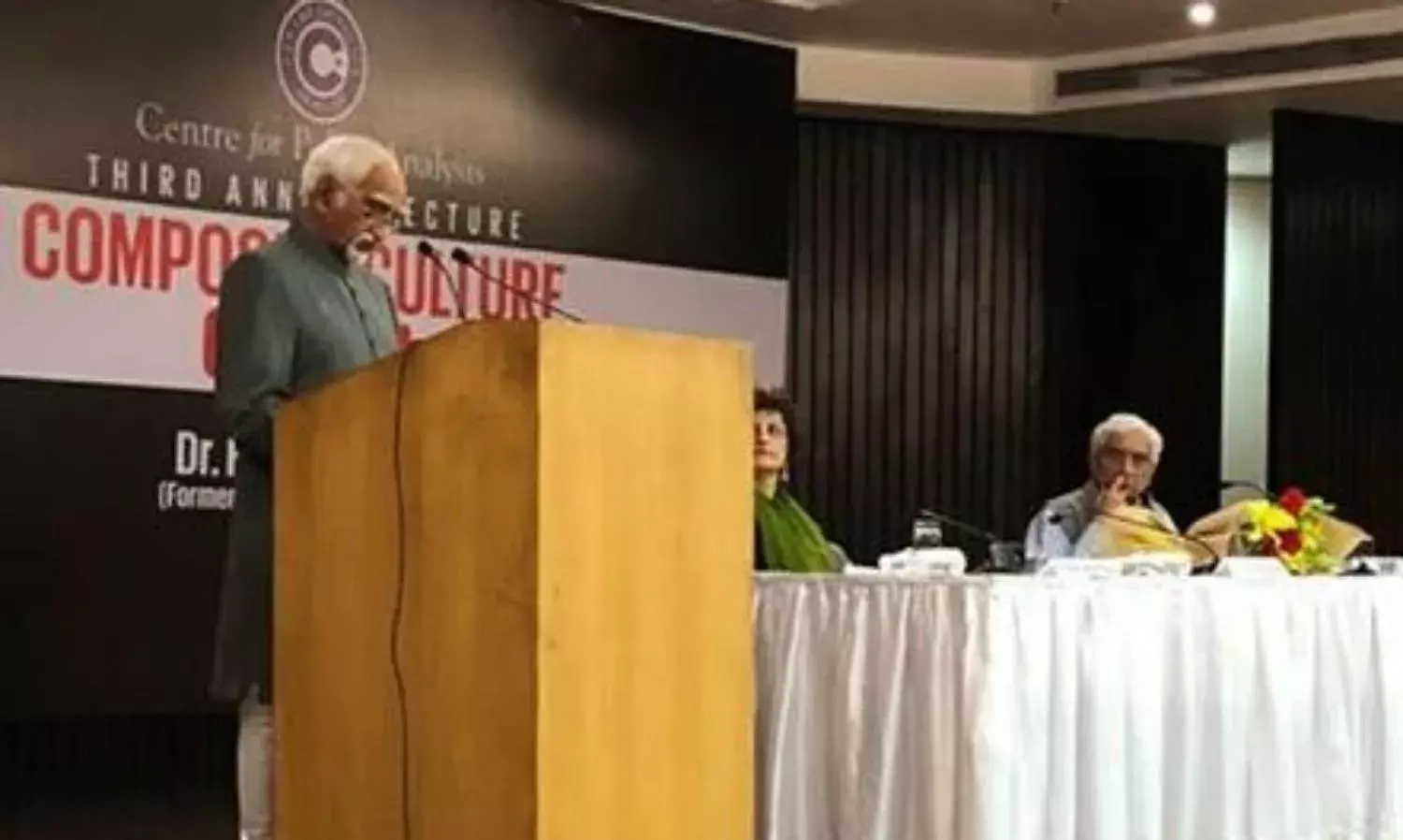Former VP Ansari Speaks of 'Loaded Agendas', Says Citizens Are Constitutionally Bound to Promote Harmony
Hamid Ansari outlines three steps to counter current challenges to composite culture
NEW DELHI: “To deny the existing reality of cultural diversity and the resultant presence of a composite culture, and to replace it with any form of mono-culture in the name of a new, strident, illiberal, nationalism is to conduct a form of regressive regimentation,” said former Vice President Hamid Ansari in Delhi Thursday evening.
He was delivering the Annual Lecture of the Centre for Policy Analysis on “Our Culture: Composite and Unique.” In a learned address, Dr Ansari did not mince words as he spoke of culture in the context of the Indian Constitution, as he pointed out that the attempt to replace Indian diversity with a form of monoculture is “to negate a constitutional directive and belittle the growth and flourishing of all ingredients of cultural diversity.”
The former Vice President who has been in his quiet but firm fashion speaking out on the issue of Indian democracy and diversity further took the term ‘talebanization’ out of a religious context and placed it firmly as part of attempts to subvert the Constitution and the rule of law. “It would be a denial of the spaces consciously created in the Constitution for the expression of religion, linguistic and cultural pluralism and has been labeled in the contemporary parlance elsewhere as talebanization,” he said.
Dr Ansari pointed to the deliberate effort to create the ‘Other’ and ‘Otherness’ by what he described as a “very purposeful and comprehensive impulse, ideology driven” effort to “differentiate the citizen body on [partially articulated but fully understood notions.” This ‘Other’ was defined, as he said, by “an alien identity different from the self.”
The former VP suggested a multipronged response to this, outlining three radical steps for an assertion by the citizen whose “constitutional duty is to promote harmony and the spirit of common brotherhood transcending diversity.”
In the first place, he said, a monoculture ideological approach is contrary to the Constitution and therefore needs to be addressed on political and juridical grounds as part of the citizen’s duty defined above.
Secondly, the “distinction between Indic and non-Indic matters in academic and popular writings should be contested since it is not sustainable scientifically and its principal purpose in societal matters is to deny and denigrate”.He referred to groupings like the Indic Collective Trust and another promoting Indic Scripts, adding, “Both could be innocuous but both are devoted to pursuits that are focused on furtherance of loaded agendas that are easily discernible.”
And third, Dr Hamid Ansari emphasised the need to assess the “impact of studied subduing or erasing of diversity in school curricla, text books on history and culture, funding patterns of cultural institutions and academies, projection of soft power abroad through government and cultural agencies.” He said that opinion needed to be mobilised for correctives. And for this purpose individuals or groups should work to compile a database of “these distortions or misrepresentations” and make these available for use by others on the internet and elsewhere. He said that the database should identity matters derogators to regional tribal, scheduled castes and minority cultures as well.
As he said, if advocacy of composite culture is to be more than a sentiment and a slogan, we have to adopt a multipronged approach involving conceptual clarity, contestation and countering of challenges to it in all their manifestations. As the former Vice President pointed out repeatedly, it has to be done as this is part of the citizens constitutional duty to promote harmony and the spirit of common brotherhood transcending diversity.”
His address laid special emphasis on the composite cultures that make India concluding in a heartfelt “let us cherish not dissipate this uniqueness.”
Dr Ansari took a few questions as well from the large audience comprising students, academics, former ambassadors, journalists, activists, feminists from all walks and shades of life, representing the composite culture of the country.





